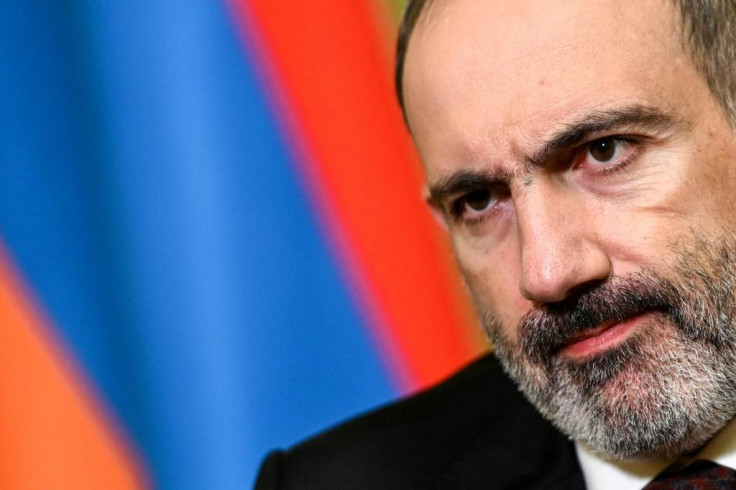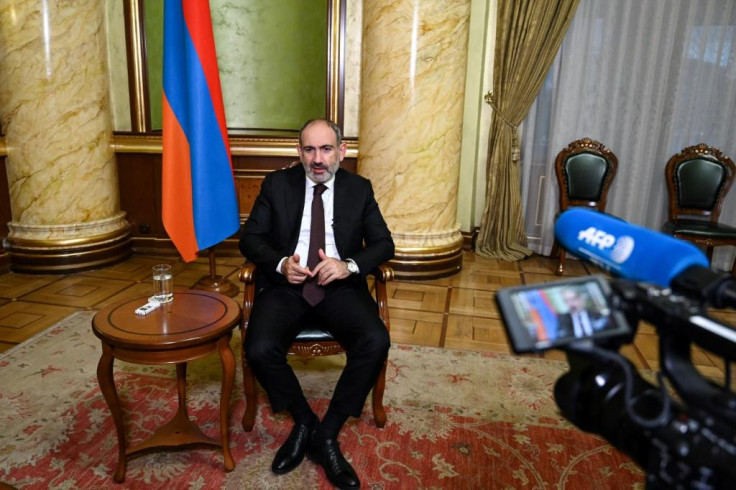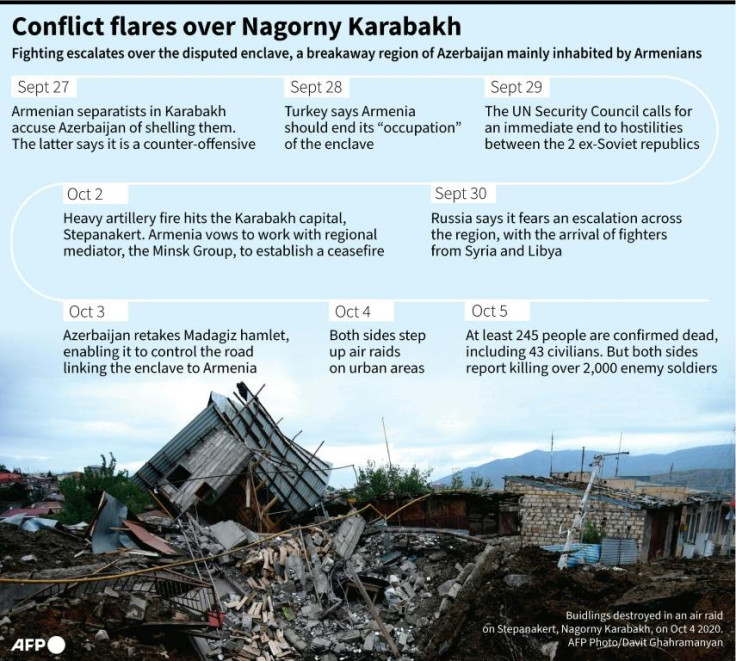Armenia PM Pashinyan says Turkey behind 'war' in Karabakh
Armenia has become "the last obstacle" to Turkish expansion, Pashinyan said.
Turkey's "full support" motivated its ally Azerbaijan to reignite fighting in the disputed Nagorno-Karabakh region, Armenian Prime Minister Nikol Pashinyan said Tuesday in an interview with AFP, calling the escalating conflict a "war against terrorism".
"While it is true that the leadership of Azerbaijan has been actively promoting bellicose rhetoric for the last 15 years, now the decision to unleash a war was motivated by Turkey's full support," the 45-year-old premier said.
"Without Turkey's active engagement this war would have not begun," he added, speaking to AFP in a sumptuous room of the Government House in the heart of Armenian capital Yerevan.

The prime minister arrived in a motorcade with wailing sirens, while armed soldiers in combat gear manned the entrance to the imposing building, built in the era of Soviet dictator Joseph Stalin.
Pashinyan nevertheless projected an air of calm, speaking slowly and weighing every word as he condemned Azerbaijan for waging a "terrorist war against a people struggling for their freedom."
Pashinyan, a former newspaper editor, became prime minister in 2018 after leading tens of thousands in protests against the ruling party, channelling a widespread desire for change and calling for good relations with both Russia and the West.
He stressed that the latest fighting is "not simply a new escalation of the Karabakh conflict," a territorial decades-old dispute over the majority ethnic Armenian mountainous region between Armenia and Azerbaijan, a mainly Muslim Turkic country that is a close ally of Turkey.

The current conflict has seen the "active engagement of terrorist groups from the Middle East in the conflict zone," Pashinyan said, describing the role of Armenian forces as a "counter-terrorism operation."
Turkey has been accused of deploying fighters from Syria to support Azerbaijan in Karabakh. French President Emmanuel Macron claimed that "jihadists" had arrived in the region, accusing Turkey of crossing a "red line".
Armenia also accuses Turkish forces of fighting directly in the region, and Pashinyan said Turkey's F-16 fighter jets were "actively engaged" in the conflict.
Turkey has denied this and no firm evidence has been presented.

Pashinyan accused Turkey of involving itself in Nagorno-Karabakh as part of its "policy of Armenian genocide."
"Turkey has returned to the South Caucasus to continue the Armenian genocide," he said.
Armenians say that up to 1.5 million people were killed by Ottoman Turks during World War I in what amounted to genocide, a claim supported by some 30 countries. Turkey rejects the genocide label and says that Turks also died in civil strife.
Armenia has become "the last obstacle" to Turkish expansion, Pashinyan said.
He warned that if "Europe fails to properly call this situation by its name," it could see Turkish forces outside Vienna, referring to the Ottoman Empire laying siege to the city in the 17th century.
Yet if the current conflict deteriorates so far that Armenia experiences a direct attack on its territory, Pashinyan said he is sure that his nation's key ally Russia would come to its aid due to the two countries' membership in a military alliance.
"In case of a security threat to Armenia, Russia's engagement will be subject to our treaty framework. I am confident that as per the situation... Russia will uphold its treaty obligations," the prime minister said.
As for the international community and the European leaders with whom Pashinyan has been exchanging multiple phone calls in recent days, he said that "the best response ... to this terrorist operation would be to recognise the independence of Nagorno-Karabakh."
The region is not currently recognised by any UN member state -- not even Armenia.
Fierce fighting reignited in Karabakh 10 days ago and has caused at least 286 deaths according to confirmed tolls that are likely short of the real total. Neither side appears to have taken a decisive lead on the ground.
Copyright AFP. All rights reserved.
This article is copyrighted by International Business Times, the business news leader





















